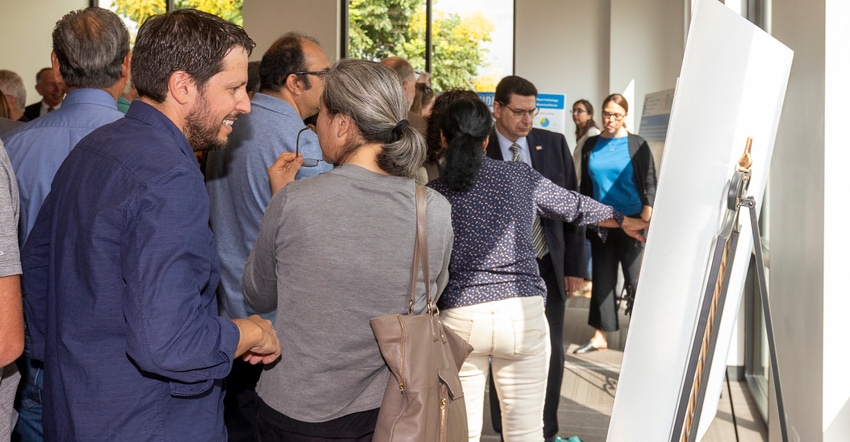
Described at its dedication ceremony as “slightly tardy and a little over budget,” the much-anticipated BSL3 lab in Riverside is rightly heralded for what it seeks: a cure for Huanglongbing.
Though past California Citrus Mutual (CCM) President Joel Nelsen will deflect public praise for his leadership regarding the project, the question remains: Would this have happened without his call several years ago to gather a who’s who of industry leaders in a private meeting that closed with $8 million in commitments? Could the University of California, Riverside have achieved what officials there sought to build: a publicly funded BSL3 lab?
These questions may be moot now as the only privately funded level 3 biosafety lab built by a single commodity for a specific purpose is open. Hailed as a positive public-private partnership that includes University of California participation, the lab will move forward under private foundation leadership to find a cure for an insidious disease that could decimate California’s citrus industry like it’s doing to Florida’s.
Though he stayed on in an advisory role, Nelsen stepped away from his leadership of CCM earlier this year in a coordinated effort to name the next generation of leadership for an organization that Nelsen oversaw for most of its existence. In February, Casey Creamer was named to lead CCM.
“Let’s get one thing straight, this isn’t about Joel,” Nelsen said at the lab’s dedication ceremony. He’s right. This is about an industry that funded its own solution to cure a disease. Still, to downplay Nelsen’s leadership would be wrong.
Nevertheless, I’m curious, was a privately funded containment lab the right move? Does this set a dangerous precedent among our various commodity groups that if the Land Grant institutions cannot or will not fund efforts to sustain American agriculture, private industry must do it? What does this say about the sustainability of a system built to educate citizens on agricultural production and sustain it for a growing country?
We’re starting to see this in various forms as farm advisors chase grants and seek private partnerships to sustain their research. The University of California will say this is happening because public funding has been flat for years, suggesting the Legislature and Congress have deemed agricultural research and Extension services unimportant, or perhaps not as important as other programs we can argue are unnecessary.
Is this “new normal” acceptable? We’re a sovereign nation not just because we have a capable military, but because we can sustainably feed our population. That we produce an abundance of food to become part of our financial export portfolio and gross domestic product is an added benefit.
In short, the California citrus industry did what was necessary to sustain its industry, and for that it should be praised. Perhaps the best way to honor Nelsen’s leadership is to put his name on the building.
About the Author(s)
You May Also Like






